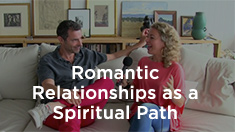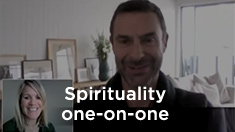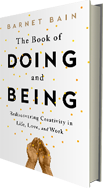Conversation with Barbara Marx Hubbard
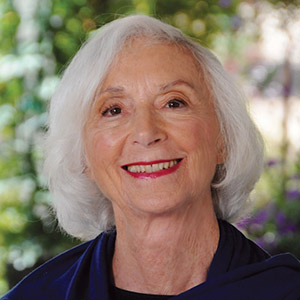
In Conversation with Barbara Marx Hubbard and Barnet Bain. Excerpts from Barbara Marx Hubbard’s Regenopause: Evolving Masculine and Feminine Webinar.
This extensive interview is spread out over six pages – it was so good, I had to publish the whole thing. Enjoy! Use the page links at the bottom to navigate to the next page.
Barbara: And before we get going, I just want to introduce Barnet – so he can say a few words about how you feel about being in the chrysalis with me and all these people, probably mostly women? [Laughs]
Barnet: Well, you know, right now we couldn’t be in more of a chrysalis. We’re so confined, and it’s so beautiful in here and cozy in here.
[Barbara laughs]
We have talked so long and so deeply and so blissfully about what it is to be in the chrysalis, from this man’s perspective it is a highly, highly dynamic experience. There’s nothing passive about it. And very often we hear people referring to this shift of paradigms, and we hear it referred to in so many different ways. But very often we hear about it as a passive experience, as something that happens to us.
And that has not been my experience as a man in the chrysalis, which I refer to it in our conversations as the liminal state. It is the state of ‘between’. It’s not what was, and it is not what will be. But I experience myself as ‘not what was’. I am aware of what was. And I also am aware that I am not yet what will be. But I am in a very dynamic, dynamic practice, which at this point rises to the level of artisanship.
I am discovering technique. And I invite you all to come with me a little bit as we explore the tools of technique that are used to fire up the creative, the space-filling component, the art-making component of what we will be, what we are birthing – the world waiting to be born through us. And these have to do with, from my perspective, certain energies that are primarily feminine.
Now, when I speak of feminine energies or masculine energies, I’m not talking about gender here. I’m talking about the idealized feminine energy and the idealized masculine energy. These are the energies that need to be refined and remembered in men and women alike.
The masculine energy: this is the energy that fills spaces. This is the creator energy. The idealized feminine energy: these are the energies that conceive even the possibility of something. It creates the potential for something, the spaciousness, the bubble that is blown “whwhwh” to create the womb for that which is yet to be born. And what is born, what it is that fills that space, is filled as a creation of masculine idealized energy. It works in a dance. It works in a synergy. Together they create some mystery called “all that is.” [Barbara laughs]
So it is my experience as an artisan moving towards artist, and as a man, that I’m looking to develop the skills of bootstrapping up my capacities to engage, to invite, and to be open to those idealized feminine energies.
And those energies are imagination and expectation, and desire. All of which, as you and I talk about so frequently, are energies that have collapsed in the modern world. For example, without imagination, we have no possibility of dreaming, of having a sense of vision, of having a sense of future. Without future, we have no ability to regenerate our story, into a magnificent story of hope, and destiny, and purpose, and meaning, and value and function to explore and share with others… You know, it is like throwing breadcrumbs out Hansel and Gretel style as a trail for others to follow.
Barbara: [Laughs]
Barnet: They are trails that we fashion, each and every one of us individually as well as collectively. And then we follow our visioning into the fullness of what can be. But when imaginations collapse as a result of the conditionings of culture, and the conditionings of a world that has alienated the idealized feminine energies; the eros, meaning, connection, value, imagination, desire, spontaneity, all these things that are the qualitative functions of being alive – the function, when we alienate function – then we are only preoccupied with form. With ‘surfaces’. Every artist knows that form follows function. When we get past the function, and we go straight to form, we create very brittle environments that are not juicy and that have no connection to source. That is the situation we find ourselves in today.
Barbara: Well, let me take what you’re saying and place it now in the context of what I’ve been calling Regenopause. And Regenopause is clearly in the chrysalis. And just to give a background on the idea of Regenopause, it’s an amazing bioevolutionary fact that we are the first generation to be told, “Don’t be fruitful and multiply.” Because if you multiply, one more doubling would kill everything on earth. We’re almost up to seven billion people.
And that means at the very deep level, in the feminine, this impulse to be the womb, to be the nurturer, to reproduce, to experience unconditional love for that which she’s giving birth to, and to do it many times and die young, most of the time, is coming to an end. As it came to an end in the 60s when we woke up, and we saw for the first time earth from space; we heard about the population problem. We realized we wanted to have identity; we wanted to have our own equality. But, something deeper than that is happening.
Now, here is my ideal definition of it. I once did a talk at the World Future Society. And I talked about the hormonal reserve in the feminine. Now, they thought I was talking about oil or some unknown resource. [laughter] What I meant by the hormonal reserve in the feminine is that we’re shifting from procreation to co-creation. That the energy that went into reproducing the species, and you go right down here into the generative organs, into the belly, into the womb, into this – it’s moving up – not only to the power center, and to the emotions, and the heart – but moving up into the vocation. To go up the evolutionary chakra meditation, we’re moving up through all of those chakras into the impulse of evolution incarnate as our creativity.
Now, when that happens to a woman, and when she falls in love with that, in her, as an expression of her own authentic self, and as an expression of what she might like to give into the world, what happens, I believe, in the hormonal reserve element of herself that something starts to turn on. And if the woman is capable – as the woman is capable – of giving birth to the child – and experiencing that she’s creating a new being in her womb – even though she doesn’t have to do any of it consciously, she does have to nurture it. She gives birth to it; she nurses it; and she loves it unconditionally no matter what it looks like.
So, what I’ve noticed for the feminine is that as we’ve fallen in love with this impulse, as we shift our energy from maximum procreation to co-creation, from self-reproduction to self-evolution, the same passion that we feel in pregnancy, birth, and nursing the child, is being felt for giving birth to the authentic feminine self, and its expression in the world. And really, I have discovered when that starts to happen to a woman, whether she be premenopausal or postmenopausal, something happens that’s very hard for the man. And here’s what it is: vocational arousal.
Vocational arousal is more than, “I have a nice job or a profession, or I’d like to be good at something.” It’s the same impulse as a spiritual evolution, as a procreative capability, as falling in love with someone. But this now is falling in love with something that you feel you’re giving birth to that when you give it out there into the world, you don’t know what its effect is. It’s just like what you’re saying. In the chrysalis, you don’t know.
Barnet: It’s an imperative. You’re really locking onto an imperative. It’s almost an attractor – this feminine energy, this womb-like energy that creates the space for all that is – it attracts us and we kind of lock onto these things. When we are ready and we are willing to unblock the ‘walls of no’, our conditioned responses of no – then, we open to this signal. When we open to the signal, our participatory choice is to zero in and to fulfill a sense of opportunity, a sense of destiny, and to be a willing participant in birthing something totally new that is as yet, unknown.
Barbara: Exactly.

